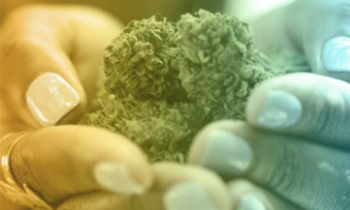From Physical Illness to Societal Ills
This post was originally intended to be a follow-up to our previous post about the emergency regulations that were enacted due to the coronavirus epidemic. We were expecting these rules to expire, or at least be modified, after a few months…but here we are, three months later, and the rules are pretty much the same. The only substantial changes that have occurred are: 1.) Massachusetts allowed adult-use dispensaries to reopen after being the only state not to designate them as essential and 2.) Nevada is allowing in-person sales again, at 50% capacity, while keeping the delivery and curbside pickup allowances in place. In retrospect, we were probably too optimistic about how long this emergency would last.
So if deliveries, curbside pickup, and social distancing continue to be the status quo, what have regulators and legislators been up to for these past few months? It would appear they pivoted to the other major news story of 2020: social equity.
Why Pivot to Social Equity?
 There have always been discussions around social equity in the cannabis industry, but the recent news spotlight on law enforcement and justice reform has brought this issue to the forefront again. We have already touched on this in a previous blog entry, but the cannabis industry was essentially founded on a system of inequity. When each state legalized cannabis sales, they banned most of the victims of prohibition from participating in licensed activities. Most policymakers will tell you this was done out of an abundance of caution and to protect the industry from federal intervention, but six years in, the legal cannabis industry is in a much stronger and safer position to successfully remove those initial barriers to entry.
There have always been discussions around social equity in the cannabis industry, but the recent news spotlight on law enforcement and justice reform has brought this issue to the forefront again. We have already touched on this in a previous blog entry, but the cannabis industry was essentially founded on a system of inequity. When each state legalized cannabis sales, they banned most of the victims of prohibition from participating in licensed activities. Most policymakers will tell you this was done out of an abundance of caution and to protect the industry from federal intervention, but six years in, the legal cannabis industry is in a much stronger and safer position to successfully remove those initial barriers to entry.
Additionally, lawmakers generally see drug reforms as an easier path to addressing inequity than other, more involved measures that would require substantive, fundamental changes to how the justice system operates. Although, lawmakers are attempting to wrangle those more complex issues, too.
The other side of this calculus is the fact that regulators have largely done all they can do in regard to addressing emergency operations during COVID. They’ve already added curbside pickup, remote ordering, and delivery where they can, and those changes haven’t resulted in any problems that need to be addressed. So regulators are essentially safe to leave the emergency rules in place while they focus on other subjects that require their attention.
So, What’s Changing?
 For starters, Colorado passed a social equity bill. The bill expands the MED’s nascent accelerator program and rebrands it as a social equity program. The accelerator program has always been aimed at social equity, because only applicants from low-income areas were eligible. But the new bill expands the eligibility criteria to include people who have marijuana convictions or lost property due to marijuana-related civil asset forfeiture; people are also eligible if they have an immediate family member who suffered the same damages during prohibition. The bill also expands accelerator opportunities for people who want to operate a dispensary, where it previously only applied to hopeful cultivators and manufacturers.
For starters, Colorado passed a social equity bill. The bill expands the MED’s nascent accelerator program and rebrands it as a social equity program. The accelerator program has always been aimed at social equity, because only applicants from low-income areas were eligible. But the new bill expands the eligibility criteria to include people who have marijuana convictions or lost property due to marijuana-related civil asset forfeiture; people are also eligible if they have an immediate family member who suffered the same damages during prohibition. The bill also expands accelerator opportunities for people who want to operate a dispensary, where it previously only applied to hopeful cultivators and manufacturers.
While we eagerly await the day when the MED fully fleshes out its accelerator program, a last-minute addition to the bill gives the Governor new power to pardon the entire class of people who have existing marijuana possession charges (up to two ounces). We hope to see Governor Polis’ pardons announced soon.
Social equity efforts are also taking center stage in states across the country:
- Massachusetts regulators recently scuttled a motion that would have asked state legislators to let them use some of the money from business fines to fund social equity programs.
- Nevada’s Governor Sisolack has already plans to pardon 15,000 convictions for marijuana possession (of up to one ounce), but due to the fact that the program is not automatic, he hasn’t issued a single pardon yet. They have only received a handful of applications so far.
- Michigan has stumbled a bit in implementation, but the MRA just held an educational session on its social equity program. Michigan’s goal is to have 50% of its licensees coming from Disproportionately Impacted Communities.
- Illinois has also stumbled a bit in its social equity program implementation, chalking the delay up to COVID issues.
- New Jersey just approved a bill that decriminalizes possession of cannabis, and they will be voting on full legalization in November. The bill also creates “virtual expungements” for anyone whose charges would have been affected by the bill had they occurred after its passage. Lastly, it expands education around eligibility for those expungements, as well as protecting cannabis users from discrimination.
- Virginia decriminalized possession of up to an ounce of cannabis.
- At the local level, Los Angeles is revamping its struggling social equity program, Grand Rapids, Mich. is working on its own program, and Denver is trying to flesh out the details for its program in a city where 75% of cannabis business owners are white.
As we’ve already mentioned, we at Simplifya would love to see even more automatic expungements, reduced barriers to entry, and more robust social equity programs. Recent developments make it clear that social equity is a difficult knot to untangle. But we are heartened to see this renewed push from regulators, legislators, and policymakers. Let’s get everyone’s records cleared and open up this incredible opportunity to everyone!
